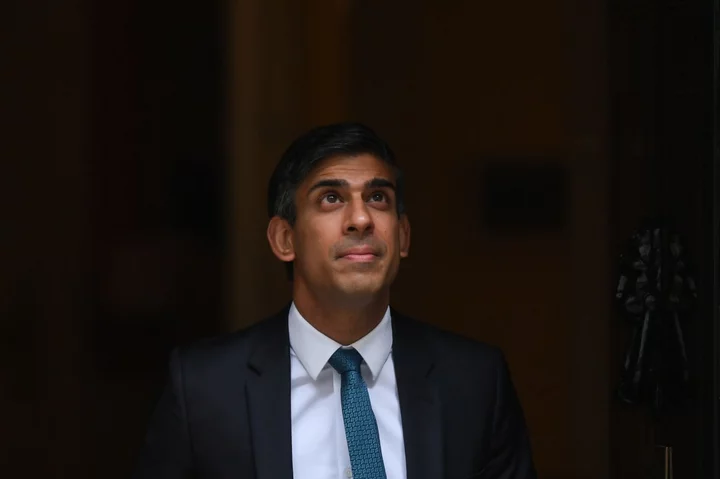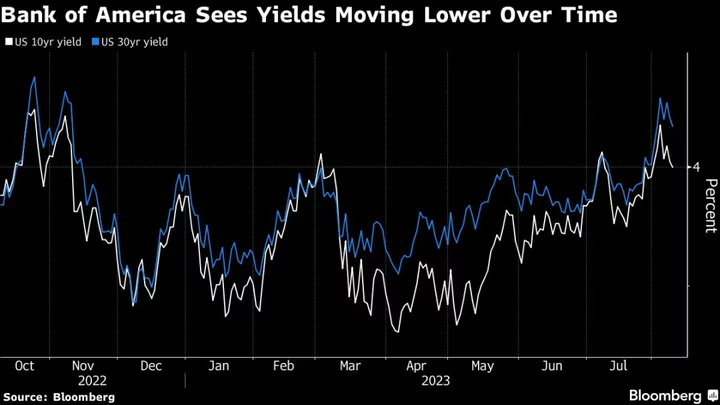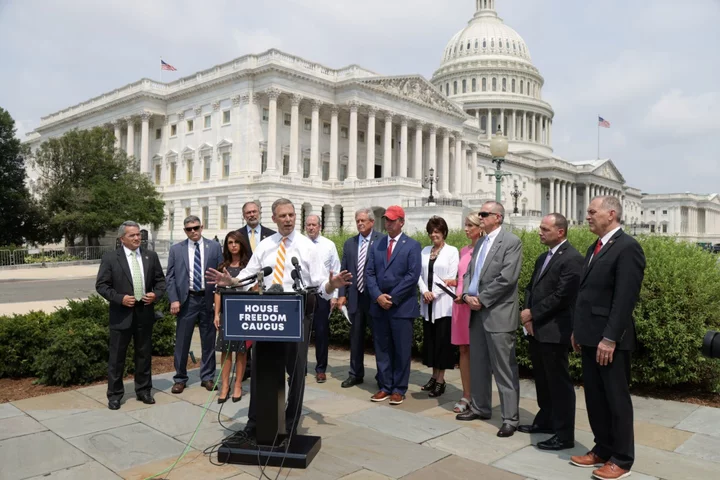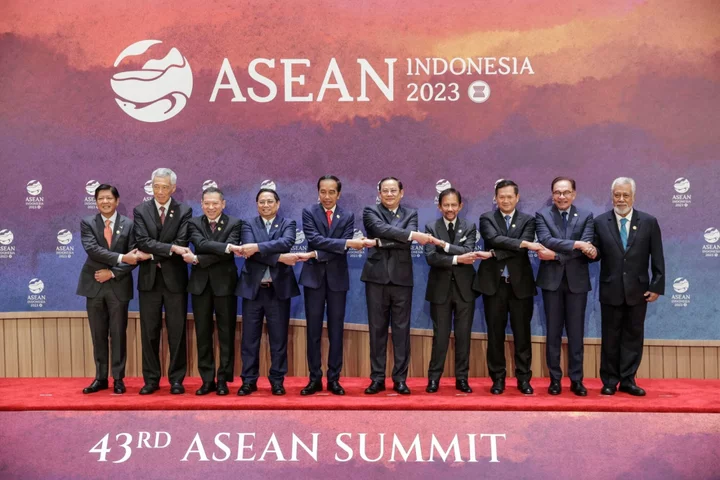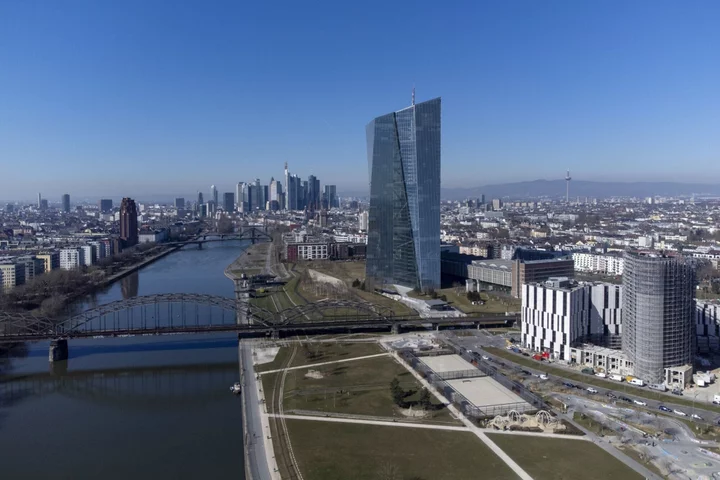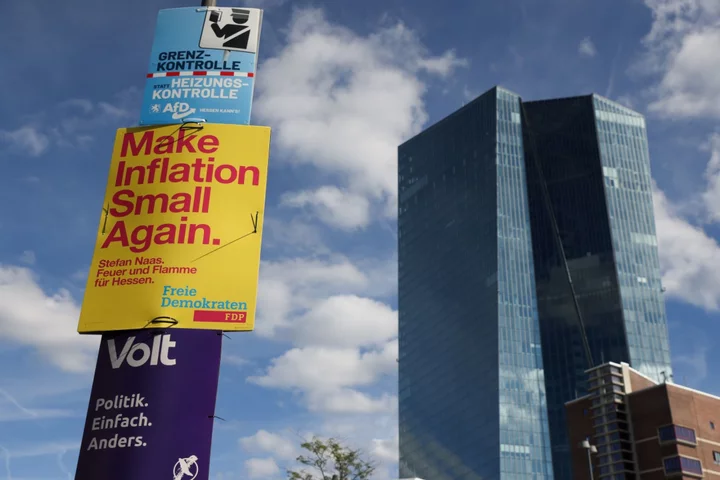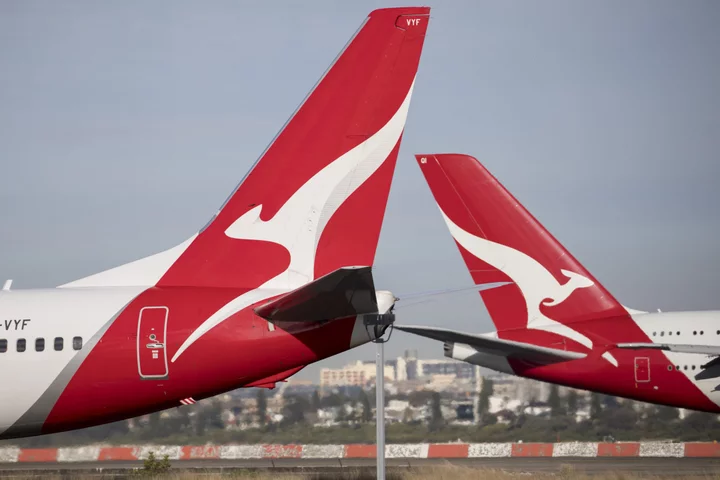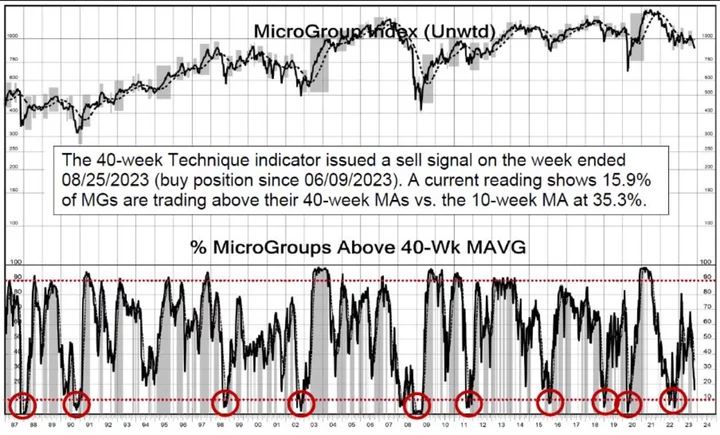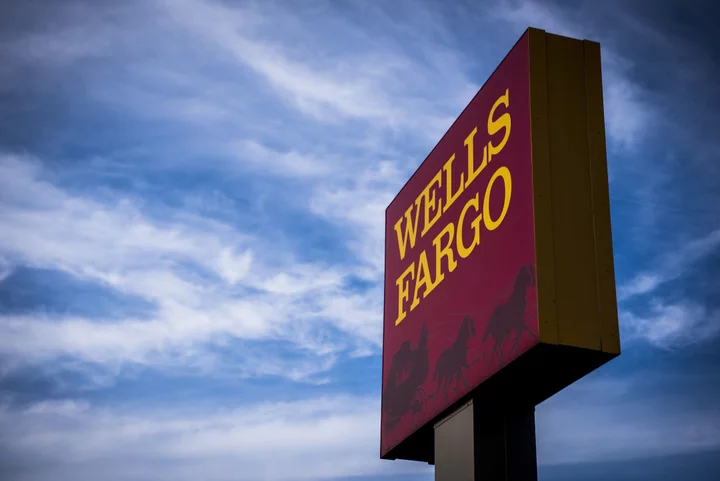Prime Minister Rishi Sunak is eyeing holding the UK’s next general election in November 2024 in order to allow the economy as much time as possible to recover before going to the polls, according to a person familiar with his thinking.
Under existing rules Sunak can call a vote for any time in the next 18 months but with his ruling Conservative Party trailing the Labour opposition by around 20 points in most recent national polls, there’s little incentive to go soon.
Instead, the premier and his advisers hope that by going long and waiting until the fall next year, persistently sticky inflation will have dropped off and the Tories will be able to point to wins on other key promises on health care and immigration, according to the person, who requested anonymity discussing internal government thinking.
Downing Street declined to comment on the date of the election.
Sunak has staked his reputation on five key promises that he’s told voters to judge him on: cutting inflation in half this year, returning the economy to growth, slashing the national debt, stopping immigrants entering the country on boats across the English Channel and slashing National Health Service waiting lists.
Faltering Promises
But inflation has proved sticky, only recently dipping below 8% — four times the official target. A recession is predicted, the national debt recently rose above 100% of economic output for the first time since the early 1960s and NHS waiting lists have risen to a record. There’s also little sign the government is succeeding in its mission to “stop the boats,” though it recorded a win this week when it pushed an immigration bill through Parliament despite opposition in the House of Lords.
The potential November timing is consistent with the hint dropped in February by Tory Chairman Greg Hands, who said then that the party had “18 months” to prepare for a vote. Nevertheless, the Financial Times last month reported growing speculation about a May election.
Technically, Sunak could call an election as late as January 2025. But strategists think it would be tricky to convince Conservative volunteers to deliver leaflets and canvass during the cold weather and over the winter vacation even though former Prime Minister Boris Johnson went to the polls in December 2019. Johnson maximized Tory voters’ higher use of postal votes than the opposition parties to win a sizable majority.
Sunak faced an early electoral test on Thursday as three special elections were held in areas currently held by the Conservatives. Results are due Friday. Losing them all would be a dramatic setback for the Tories as he tries to turn around his party’s fortunes. The prime minister’s popularity rating sank to its lowest level since he entered 10 Downing Street in October, according to a YouGov poll published Wednesday.

